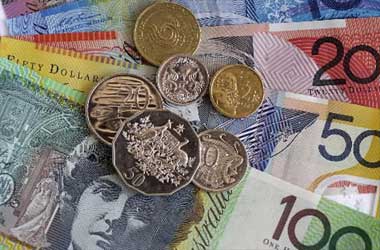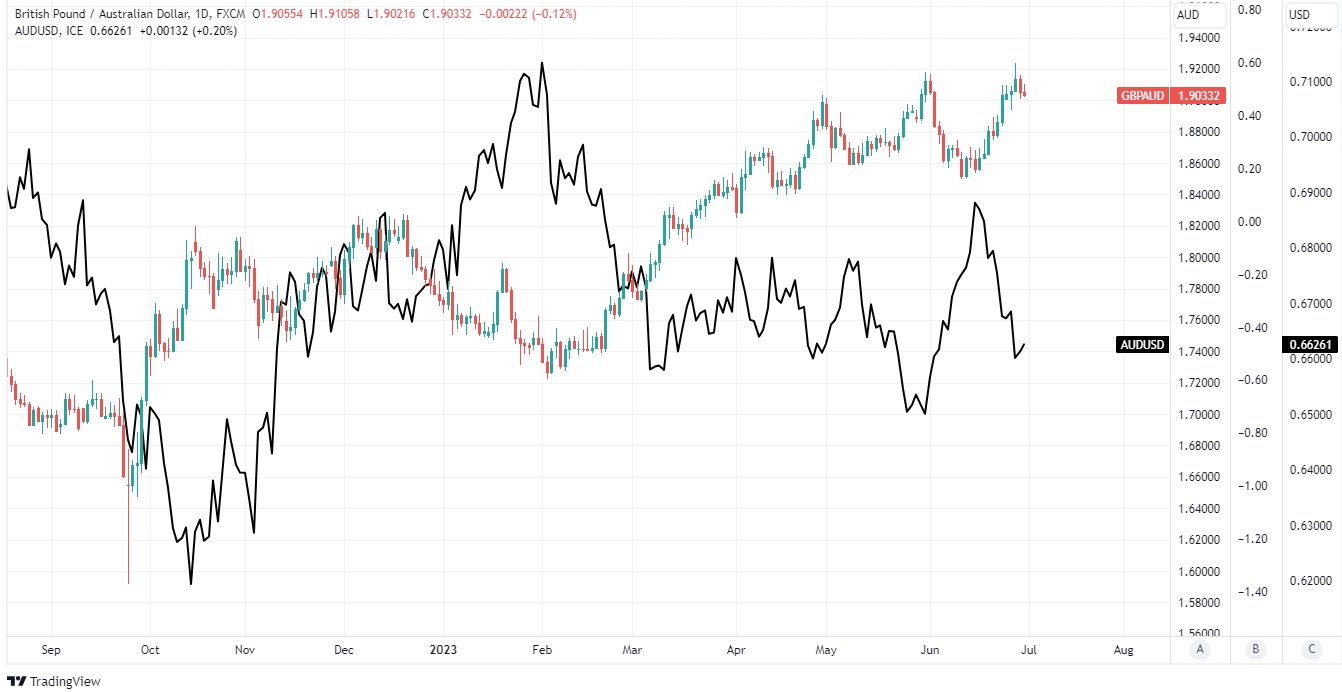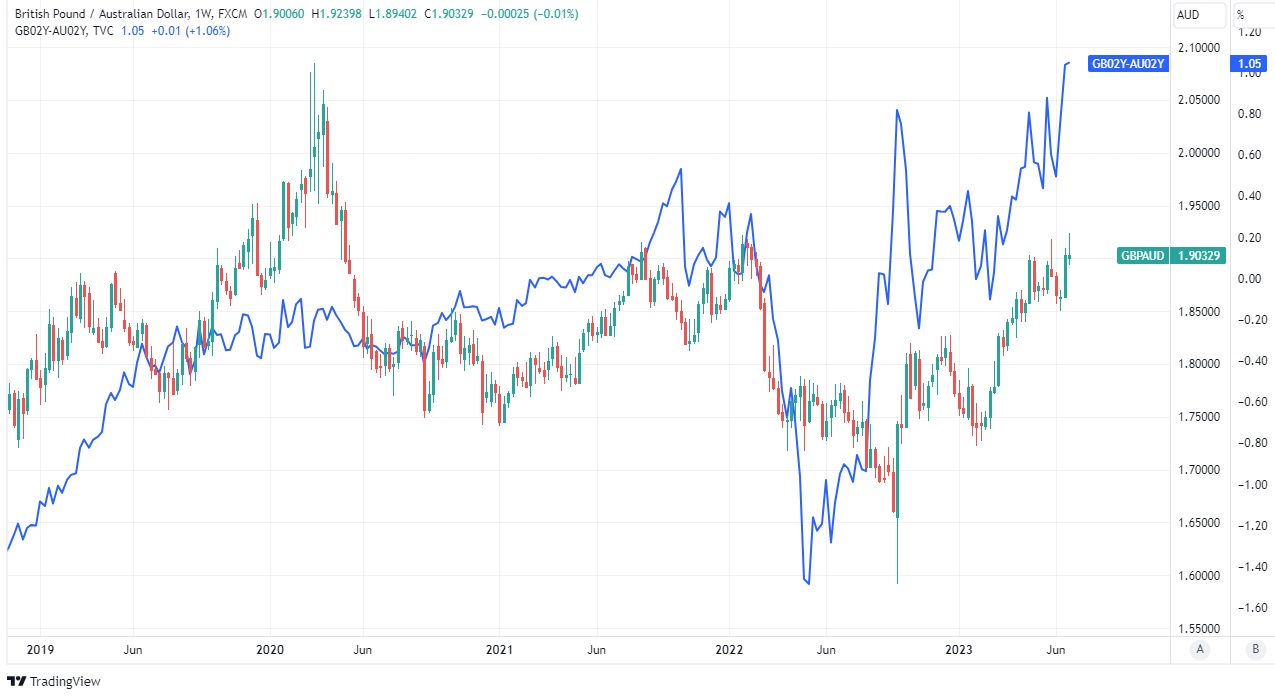 Based on an analysis conducted by market experts, the recent trajectory of the Pound to the Australian Dollar exchange rate indicates that the forthcoming interest rate decision by the Reserve Bank of Australia (RBA) on Tuesday will play a pivotal role in determining the sustainability of Sterling’s upward momentum or the potential for a setback.
Based on an analysis conducted by market experts, the recent trajectory of the Pound to the Australian Dollar exchange rate indicates that the forthcoming interest rate decision by the Reserve Bank of Australia (RBA) on Tuesday will play a pivotal role in determining the sustainability of Sterling’s upward momentum or the potential for a setback.
The Australian Dollar experienced a surge in buying activity prior to the weekend, as favorable economic data from North America served to counterbalance earlier losses caused by a more rapid decline in inflation than initially anticipated.
According to Derek Halpenny, who serves as the Head of Research for Global Markets EMEA and International Securities at MUFG, the recent appreciation of the Australian Dollar can be primarily attributed to trading activity in London during the afternoon session. Additionally, Halpenny suggests that the currency’s upward movement may have been influenced by delayed responses to reports regarding anticipated stimulus measures that are anticipated to be unveiled in China.
According to Halpenny, it is evident from China’s latest data that there is a requirement for stimulus measures. This is supported by a marginal rise in manufacturing PMI and a decrease in services PMI.
The Australian Dollar may have received some bolstering from the improved retail sales in May. However, the inflation data released on Wednesday has introduced the potential for a hawkish surprise from the Reserve Bank of Australia (RBA) if worries regarding price pressures in the services industry continue to persist.
During the month of June, the Reserve Bank of Australia (RBA) made the decision to increase its cash rate to 4.1%. However, the RBA also conveyed apprehensions regarding the extended duration it may take for inflation to reach its desired target, particularly if inflation within the services sector escalates into a substantial issue.
Deputy Governor Michele Bullock underscored the significance of closely monitoring key indicators such as inflation in services, employment figures, and consumption patterns. Additionally, she emphasized the need to assess how households are adapting to their accumulated savings reserves.

The recently published official data, unveiled on Wednesday, indicates a decline in Australian inflation to 5.6% during the month of May. As a result, numerous economists and financial markets are now predicting that the cash rate will remain unaltered in the upcoming Tuesday. Nonetheless, economists at Westpac contend that the prevailing inflationary forces are more robust than they initially appear, thereby implying that a potential adjustment to the cash rate may be necessary in order to maintain stability.
According to Westpac economists, it is anticipated that the Reserve Bank of Australia (RBA) will raise the cash rate to 4.35% in the upcoming week. These economists emphasize the importance of avoiding any unwarranted pauses, as such delays could potentially prolong the economic repercussions.
The argument posits that by excluding volatile items, the portrayal of inflation becomes less favorable compared to the overall inflation rates, thereby bolstering the rationale for additional increases in the cash rate.

In the event of an unexpected move by the Reserve Bank of Australia (RBA) in the upcoming week, there exists the possibility of favorable outcomes for the Australian Dollar. This development may also have the potential to disrupt the ongoing upward trend in the GBP/AUD currency pair, which has primarily been influenced by heightened anticipations of an interest rate increase by the Bank of England.
Based on the analysis provided by Carol Kong, an esteemed economist and currency strategist at the Commonwealth Bank of Australia, the robust performance of the Australian Dollar and Pound can be primarily attributed to the hawkish stance adopted by their respective central banks. Conversely, the Japanese Yen and Chinese Yuan have experienced a decline in value, primarily influenced by the dovish inflation outlooks communicated by their central banks.




